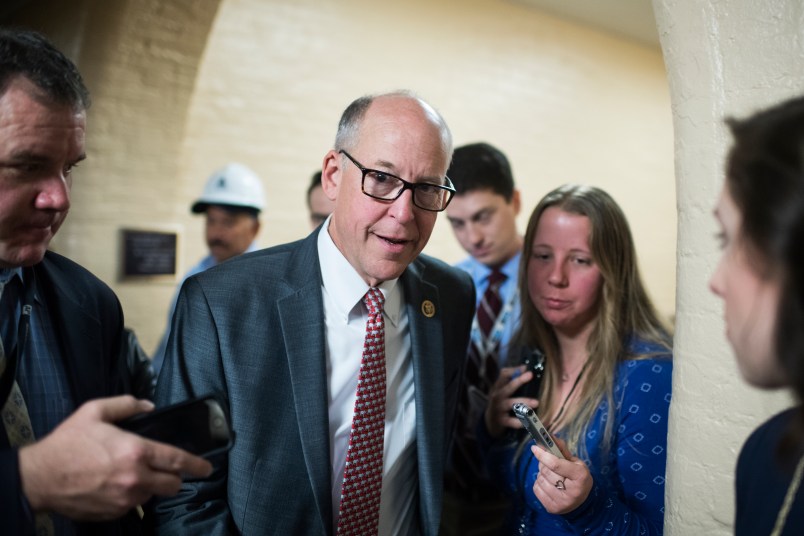A key House Republican in the effort to repeal Obamacare said that the law’s subsidies for insurers which are currently the target of a GOP lawsuit will continue in the so-called transition period after the Affordable Care Act of is repealed. The acknowledgement that the subsidies will need to be maintained is yet another signal that key Republicans on the Hill are prepared to prop up Obamacare in the short term while they work on an eventual replacement plan
House Energy and Commerce Chairman Greg Walden (R-OR), who heads one of the committees that will be writing the legislation to repeal Obamacare, told Politico last week that he wants to see the subsidy program funded “one way or another.”
“If you don’t, the plans have the ability to cancel midyear, and we said we wouldn’t pull the rug out from under people — and we shouldn’t,” he said, according to the report published Friday evening.
The subsidies are known as a cost-sharing reduction payments, and they help insurers keep out-of-pocket costs down for low-income consumers, as is required by the Affordable Care Act. House Republicans sued the Obama administration in 2014 for using Treasury Department funds to make the payments, as they had not been appropriated by Congress. A federal judge last May ruled in favor of the Republicans, but after the case was appealed, its proceedings were paused until after President-elect Donald Trump is inaugurated.
“We’re working through the mechanics on it because we also want to preserve the court victory,” Walden told Politico. “Regardless of who is in power, if you get to the point where a president can spend whatever he or she wants without any check and balance from the Congress, you don’t have these branches anymore.”
The subsidies were among a number of measures in the Affordable Care Act that Republicans decried as “insurer bailouts” under the Obama administration. Health policy experts predict major chaos in the individual market, if not an outright collapse, if the cost-sharing reduction payments were abruptly stopped. As TPM previously reported, some Republicans have acknowledged that they would need to maintain measures they opposed in the past to stabilize the insurance market while they dismantle the Affordable Care Act.
Notably, Senate HELP Chair Lamar Alexander (R-TN), who heads one of the committees writing the repeal legislation on the Senate side, said in a floor speech last week that the cost-sharing payments should be continued on a temporary basis.
“We may have to agree to do somethings for a two- to three-year period that we normally wouldn’t do in the long-term to make sure we give people the relief,” Alexander told TPM before the holiday break.
According to the Politico report, other Republicans are conceding that they will have to appropriate the money to maintain the payments, but it’s unclear exactly how or when they plan to do so. Nor is it certain that they have consensus on the issue.
“You can’t [fund the program] unless you’re going to increase the allocation to the committee,” Rep. Tom Cole (R-OK), chairman of the House Labor and Health and Human Services appropriations subcommittee, told Politico.
“I don’t know that we’re particularly obligated to pay for the mistakes that the Obama administration made that violated the law,” he said.







Oh Congresscreep Snowflake, you don’t want any consequences at the midterms! And we all know, once you subsidize something,the subsidy is forever.
Hapless fools/killers.
More evidence that we have been witnessing a six year Congressional tantrum. Sound and fury, signifying nothing in the end.
I hope.
The GOP needs to, among other things, avoid job losses. Estimates I’ve seen run as high as 3 million positions if ACA is axed without a replacement. That would raise the national unemployment rate to about 6.6pct from the current 4.7pct. Just in time for 2018. Ouch!
The subsidies you fought to eliminate while President Blackenstein was in office? The ones you said were fiscally irresponsible and a handout? Those subsidies?